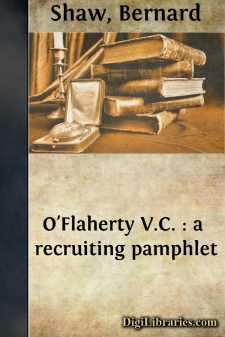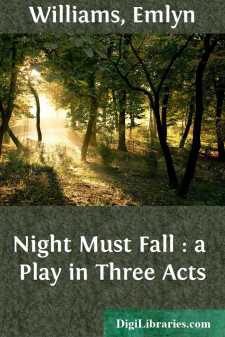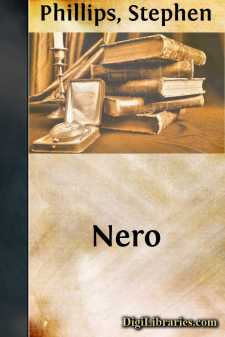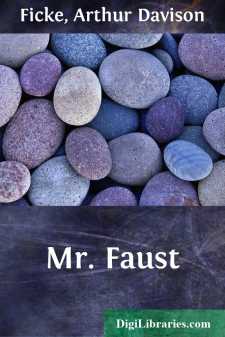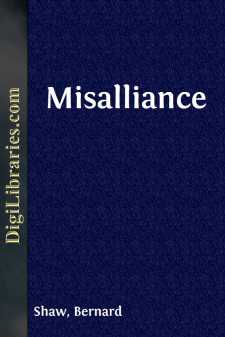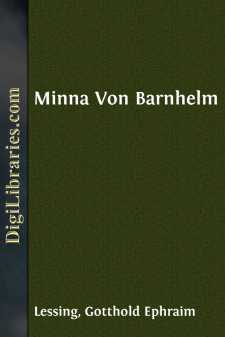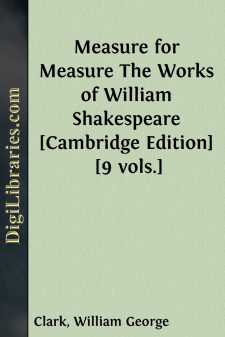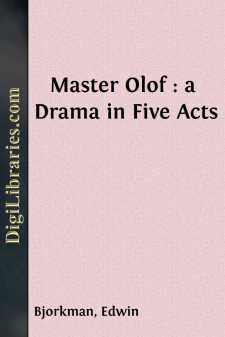Drama Books
Sort by:
by:
Bernard Shaw
It may surprise some people to learn that in 1915 this little play was a recruiting poster in disguise. The British officer seldom likes Irish soldiers; but he always tries to have a certain proportion of them in his battalion, because, partly from a want of common sense which leads them to value their lives less than Englishmen do [lives are really less worth living in a poor country], and partly...
more...
by:
Emlyn Williams
ACT I The sitting-room of Forest Corner, MRS. BRAMSON'S _bungalow in a forest in Essex, A fine morning in October. Centre back, a small hall; in its left side the front door of the house (throughout the play, "left" and "right" refer to the audience's left and right). Thick plush curtains can be drawn across the entrance to the hall; they are open at the moment. Windows, one...
more...
by:
Stephen Phillips
ACT I SCENE.—The scene is in the Great Hall in the Palace of the Caesars. At the back are steps leading to a platform with balustrade opening on the air, and beyond, a view of the city. [On the right of the stage is a cedarn couch on which CLAUDIUS is uneasily sleeping. On the right is a door communicating with the inner apartments. On the left a door communicating with the outer halls. [XENOPHON is...
more...
INTRODUCTION Through all the work of Arthur Davison Ficke runs a note of bigness that compels attention even when one feels that he is still groping both for form and thought. In "Mr. Faust" this note has assumed commanding proportions, while at the same time the uncertainty manifest in some of the earlier work has almost wholly disappeared. Intellectually as well as artistically, this play...
more...
INTRODUCTION BOTH volumes of the Scandinavian Classics selected to appear in 1916 are by natives of Iceland. They belong, however, to periods of time and to modes of writing remote from each other. Snorri Sturluson, the greatest of Icelandic historians, was born in 1179. His Prose Edda, the companion-piece of the present volume, is a Christian's account of Old Norse myths and poetic conceptions...
more...
PEOPLE IN THE PLAY ALICE GARDNER: Daughter of James K. Gardner, President of the L.I. & W. Railroad "UNCLE" JOSEPH HATCH: Alias "Gentleman Joe" "BRICK" MEAKIN: Alias "Reddy, the Kid" HARRY HAYES: Alias "Grand Stand" Harry CAPTAIN LUCAS: Chief of Police Policemen, Brakemen, Engineers Scene—The dining room in the country house of James K. Gardner on Long...
more...
by:
Bernard Shaw
MISALLIANCE Johnny Tarleton, an ordinary young business man of thirty or less, istaking his weekly Friday to Tuesday in the house of his father, JohnTarleton, who has made a great deal of money out of Tarleton'sUnderwear. The house is in Surrey, on the slope of Hindhead; andJohnny, reclining, novel in hand, in a swinging chair with a littleawning above it, is enshrined in a spacious half...
more...
INTRODUCTORY NOTE Gotthold Ephraim Lessing was born at Kamenz, Germany, January 22, 1729, the son of a Lutheran minister. He was educated at Meissen and Leipzic, and began writing for the stage before he was twenty. In 1748 he went to Berlin, where he met Voltaire and for a time was powerfully influenced by him. The most important product of this period was his tragedy of "Miss Sara Samson," a...
more...
MEASURE FOR MEASURE. ACT I. I. 1 Scene I. An apartment in the Duke’s palace. Enter Duke, Escalus, . Duke. Escalus. Escal. My lord. Duke. Of government the properties to unfold, Would seem in me to affect speech and discourse; 5 Since I am to know that your own science Exceeds, in that, the lists of all advice My strength can give you: then no more . . . . . . . . . . . . . . . . . . . . as your worth...
more...
by:
Edwin Bjorkman
ACT I (A Cloister opening upon a Convent Close planted with groups of trees. The convent church forms the right side of the quadrangle. A brick wall runs along the rear. Fruit trees in blossom appear above the wall. Olof is seated on a stone bench. Before him stand two scholars, who are reading their respective parts out of "The Comedy of Tobit.") First Scholar. Now have our enemies trapped us...
more...


